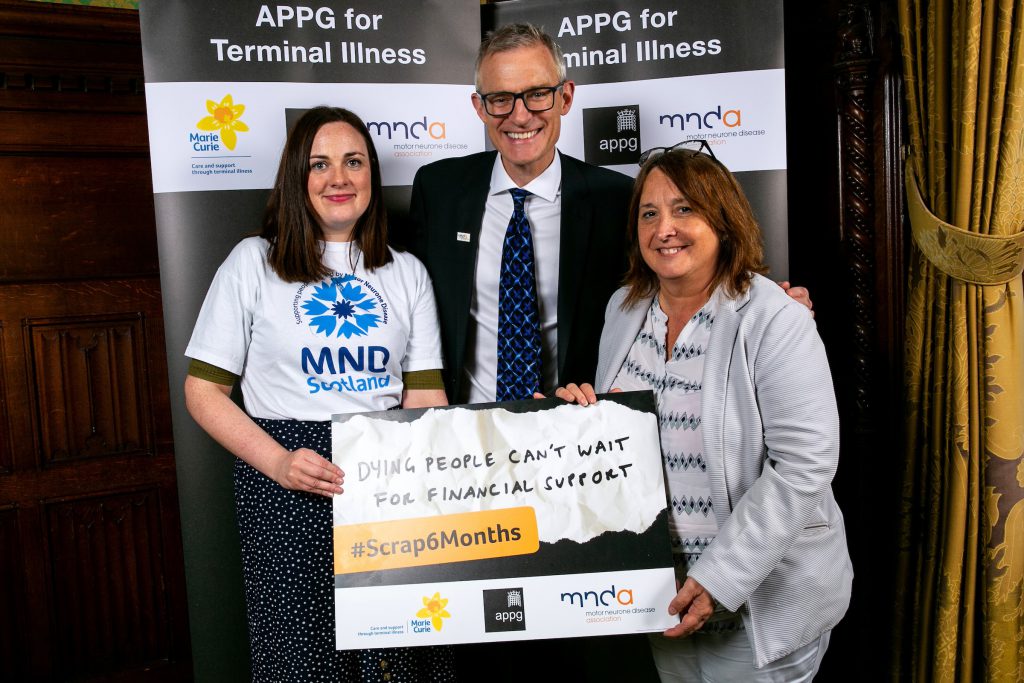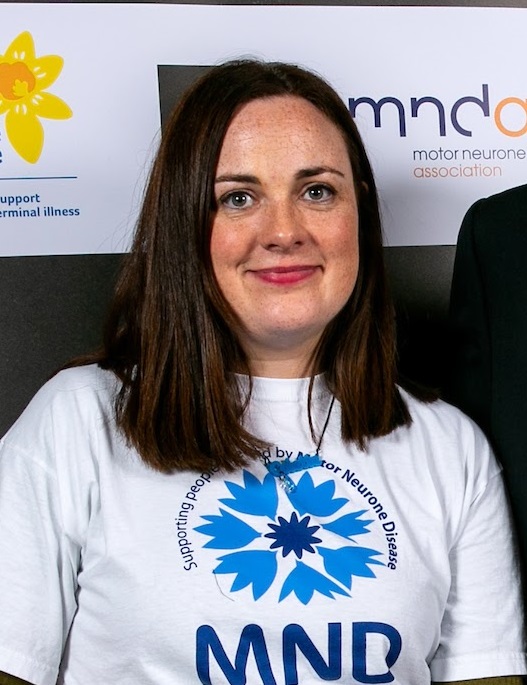What is MND
Find support
I have MND
I am supporting someone
Get involved
Research
About MND Scotland

 – By Colette McDiarmid
– By Colette McDiarmidUnless you’ve been paying close attention, you might be a bit confused with what’s been going on with the benefits system – and who could blame you?
Over the last few months, it’s easy to forget there’s been a Conservative leadership election, a new Prime Minister, and a General Election, followed by Christmas and New Year.
And now that all those things have concluded, what better time to take some stock of where we are with the progress of important issues like benefits?
For some time, we’ve been campaigning to ensure the benefits system works for people with MND. Too many times, people with MND have either waited too long to get their benefits or, in some cases, died before receiving their first payment. One of the key issues we have been campaigning on, is to ensure that the Special Rules on Terminal Illness (SRTI) are fair, and that people with MND will qualify to get their benefits fast-tracked.
Normally, when someone with MND claims benefits, they will need to get a DS1500 form from their GP or Nurse to ensure they get their benefits quickly. The DS1500 is signed by a clinician if they believe that person has 6 months left to live. This is often referred to as the ‘six month rule’. However not everyone with MND will get a DS1500 form as life expectancy it is too difficult to predict. Without the DS1500, people wait months for their benefits – and that’s why we’ve been campaigning, with other charities, to change it.
After MND Association and Marie Curie lobbied the UK Government to review the rules, the Department for Work and Pensions (DWP) finally announced it would review the ‘special rules’ in July 2019.
During the December General Election in 2019, MND Association and Marie Curie urged the government to launch the review which had been promised months earlier. After this pressure, the DWP launched a survey in January 2020 to gather the views of health professionals, who are responsible for filling out DS1500 forms, on the special rules process.
The All Party Parliamentary Group (APPG) on MND also met in February to discuss the next steps for the DWP review. The meeting was chaired by Andrew Lewer MP and attended by around 20 MPs from across all parties. At the group, Mr Lewer confirmed he met with Work and Pensions Secretary, Therese Coffey, and Minister, Justin Tomlinson, to discuss progress made since the announcement of the review last year.
Since the meeting, where many MPs heard a powerful testimony on why the system is not working for people with MND, several MPs have backed the campaign to review the six month rule.
In 2018, when the Social Security (Scotland) Bill was making its way through parliament, we campaigned, alongside Marie Curie, to ensure that the ‘six month rule’ was changed for devolved benefits. We argued that this rule was too arbitrary and meant people were missing out on getting benefits fast-tracked when they needed it most.
We campaigned with Marie Curie in the lead up to the Bill being finalised and urged the Scottish Government to scrap the six-month rule for benefits, which are devolved to Scotland. The Scottish Government agreed to change the rules, meaning that decisions on fast-tracking benefits here will be led by clinical judgement instead of using the ‘six-month rule’. This wouldn’t have been possible without the help of our amazing supporters who contacted their MSPs back in 2018, to ask them to change the rules.
Unfortunately, benefits such as Universal Credit, will continue to be administered by the UK Government, and will remain subject to the SRTI. This means that people in Scotland will face a two-tier system where some benefits are more difficult to access than others.
So, although we’ve made some progress, there’s still more work to do. We want to ensure everyone with a terminal illness, living in the UK, is being assessed for benefits using a fairer and more dignified system.
We will continue to keep you up to date with the progress of the DWP review and the progress of the devolved system in Scotland.
If you require any assistance with your benefits, please get in touch with our Welfare and Benefits team, who will be happy to help.
Sign up
for newsletter
Get the latest news and events straight to your inbox.
You can help create a world without MND